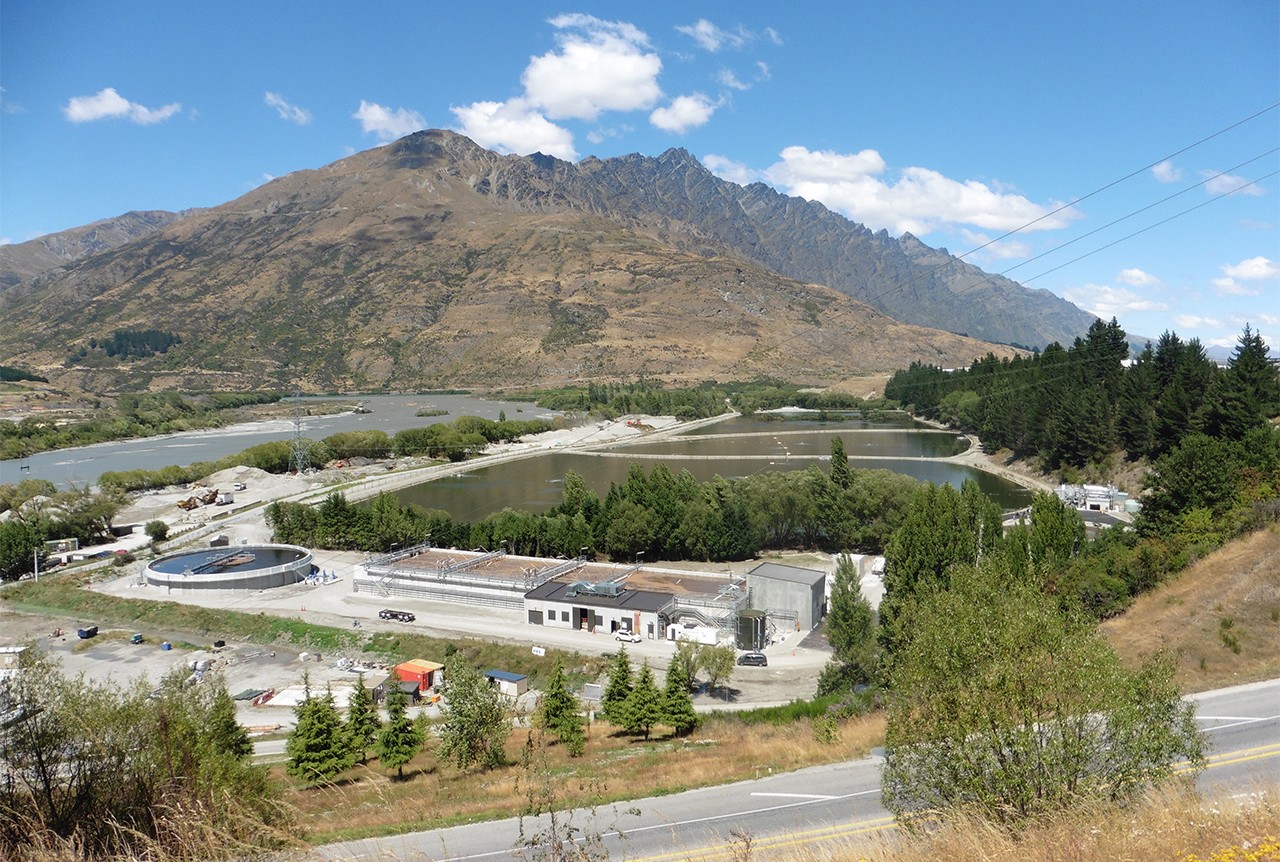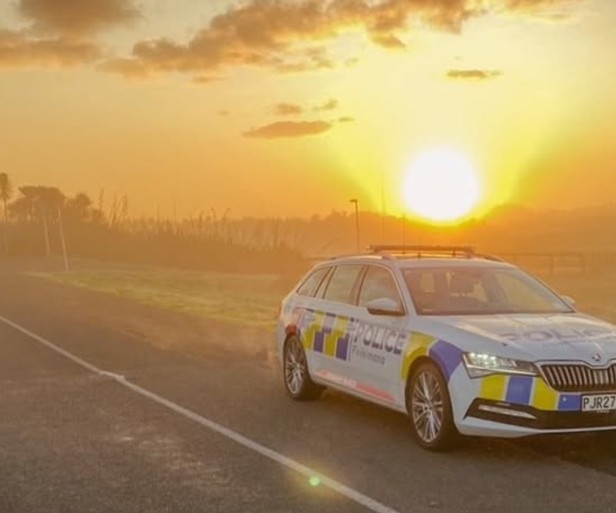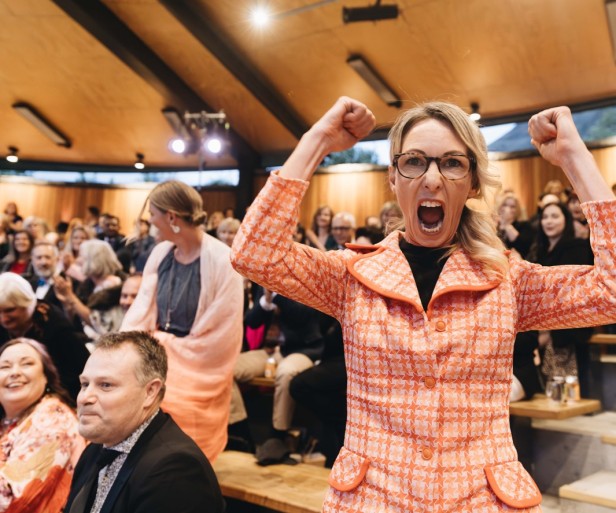Infrastructure pain - How did they cope in the past?

It’s an age-old problem that Queenstown councils have faced for decades, ever since the Wakatipu’s now world-renowned beauty and charm has been luring visitors from around the world.
It’s not the most celebrated of council responsibilities but ensuring there’s adequate infrastructure in place to manage this popularity and the huge population growth that goes with it, have plagued successive councils for decades.
Our current council is no exception with many issues hitting its infrastructure lately. We’ve had stormwater, wastewater and sewage leaks, contamination of the water supply, rain events ripping up the cemetery and roads. Our Lower Shotover poo ponds have become highly pongy while the council has awaited missing parts and as recently as last week leaked 420,000 litres of partially treated sewage into natural swamp adjacent to the Shotover River.
Former mayors say they all faced the challenges of funding rapid growth by ensuring sufficient functional infrastructure was in place. All were adamant that they’d never criticise the current regime with the mayor and council all doing their best.
We asked them how they overcame these challenges

Former Mayor Warren Cooper served at the helm twice from 1968 until 1975 and again from 1995 until 2001. Faced with growing numbers of tourists in the early 1970s and insufficient ratepayers to fund the necessary infrastructure Cooper flew to Wellington to ask Finance Minister, (later Prime Minister), Rob Muldoon for support. Meanwhile, his council halted building permits on any new major commercial developments, delaying two hotels, until the government would listen. “We told applicants that they could go ahead once the government recognised the plight of local ratepayers trying to provide water, sewerage and roading for major developments,” Cooper says. Within three months the government had gifted 100acres (40.4ha) of Crown land on Queenstown Hill – The Commonage, for housing development.
This was subdivided into what became highly sought after sections and used to fund infrastructure upgrades for decades, the last of which are only being sold now. He believes there’s been a weakening in local government nationally. “Most of the work is under supervised in this community with Central Government outsourcing some of its shovel ready projects with no pricing or tendering, on a ‘charge up basis’.” He’s not blaming council, or the government, but says councils need to maintain good standards at a competitive price and ensure works are well supervised. “In my day successful businessmen and women stood for council but they’re all so busy today they don’t want to.” He’s urging local businesspeople to ‘have a go’ at the next elections.

Former Mayor Sir John Davies (1983 – 1989) says he feels sorry for Mayor Lewers who has inherited debt and doesn’t have the money to do the necessary works. “The government doesn’t have any money either,” he says. He’s more critical of some of the council development decision making and calling for more foresight. “The only people in town in five years will be the tourists and tourism operators. We have a great town, but people won’t come here with Frankton Road and our infrastructure the way it is. It’s ridiculous. Why the council wants to build a new council building to serve tourists and tourism operators in the middle of the CBD is beyond me.”

Former council CEO Duncan Field (1997 – 2010) says the financial burden on ratepayers to upgrade infrastructure has always been an issue and it’s one being faced by other much larger councils nationwide. However, he’s never seen so many issues with our infrastructure systems all at the same time as we’ve had lately.
“People consistently underestimate the growth in this region, how popular Queenstown’s going to be. We’ve had generations of a lack of upgrades to infrastructure, which dates back 20 or 30 years. People make judgements and think this growth can’t keep happening. Who’d have thought we’d bounce back to tourism levels like this as quickly after Covid?”
The simple answer is more money and Field says this is why Mayor Glyn Lewers and predecessors have pushed for a visitor tax again and why the council is having to make property investments. “The council needs an alternative source of finance now The Commonage land has run out.”

Former Mayor Clive Geddes (2001 – 2010) says local governments nationally have had an “extremely wide range of responsibilities imposed upon them by Central Government” in the past 20 to 25 years.
“The costs attached to this mean those funds aren’t available for what they should be doing. For example, local governments across NZ are required to make climate change policy which is absolute nonsense.
“Local government has faced all that extra responsibility without the funding attached. We aren’t the only community going through these issues. You can’t continue to put rates up, particularly to deliver Central Government responsibilities. It then has to come from a reallocation of rates. It seems each year we’re having to manage proposed double-digit rate increases which is an unreasonable challenge on any council, particularly our high growth model.”
Geddes says the single greatest challenge our council faces is the added burden of managing one of the fastest growth rates in NZ. “Central Government needs to ensure local government can get back to its core responsibilities. It’s got to stop or there’s a huge risk in the next decade that local government will become dysfunctional with too many roles to deliver for the limited amount of money each community can afford.”

Former Mayor Vanessa van Uden (2010 – 2016) says it’s always imperative to keep council spending and budget blow outs under control. “We don’t know what’s currently going on for the council as we’re not in the tent but in times like this we’d ask, ‘Do we need to do this now or is it a ‘nice-to have’, and if we need to do it, do we need to do it to the level being proposed. Does it need to cost this much?” she says. “Sometimes you can be paying big bucks for the gold plating.”
She believes there’s been a real situation in NZ local government with costs incurred to build to the highest standards, that “may be conceptually nice to have, but with constrained funds choices need to be made”.
“Stormwater, wastewater and leaks are the stuff you have to do, and every so often plant fails, but spending in other areas can be reined in to ensure costs to the ratepayer are managed,” van Uden, who also has career experience in local government contracting, says. “It’s about fully understanding what’s causing the issues – poor design, substandard construction, operations and maintenance inadequacies, or bad luck and doing the investigation to find out. If funding’s tight spend the money on priority projects.
“We focused on review and tight control of council operational expenses, like wages and salaries and maintenance contracts, which rates predominantly fund.”

Previous Mayor Jim Boult (2016 – 2022) says he‘s never wanted to be “a voice from the past” and has every faith in the current elected members and staff to the best for the district. However, all NZ councils are facing funding shortages. “In our district the impact of unprecedented growth and poorly thought legislation has cost the council some $100m in leaky building claims - money that could’ve been spent on infrastructure,” Boult says. There’s a lot of aging in our infrastructure and a much greater population putting pressure on that. “Queenstown’s infrastructure would’ve been largely funded by a bed tax which Mayor Lewers is very supportive of. That could raise $25m a year. When we undertook the upgrade of the downtown area there were literally pipes, drains and cables everywhere under Rees Street, many not accurately charted. Over the past 50, 60 or 70 years, various councils put in pipes, drains and cables. You dug a hole and put a pipe in.” He says the current systems can be anything from relatively new to 70 or 80 years old.

Mayor Glyn Lewers Responds
The Queenstown Lakes District is now copping the fall-out from an underinvestment in infrastructure for the past 30 years that began under Labour Government reforms in the mid-1980s – a nationwide local government issue, Mayor Glyn Lewers says.
Queenstown’s unique position as the country’s leading, year-round tourism destination and only a small ratepayer base to fund it puts immense pressure on the council and ratepayers, he says.
“Our resident population base is growing at 2% a year while our visitor population is far greater and growing at 4% annually,” he says. “What’s more acute for us is that we’ve seen Central Government dial back its investment into infrastructure.”
Lewers says government agencies told his council it was “too ambitious” with its visitor and population growth projections. “Growth is tracking as we predicted and has exceeded in some areas.”
The district has enough zoned land for development for 30 years. “We just don’t have the infrastructure in the ground to service it.”
The past government’s Three Waters reforms, in which the government takes over control and power of local authority infrastructure leaving councils at “arm’s length”, has created enormous strain and pressure on council staff currently working through the district’s Long Term Plan, he says. The change in government prompted a December directive to bring Three Waters back inside councils in their 10-year forecast which Lewers says has put a “big strain on our property and infrastructure team”.
“This year will be a ‘keep the lights on’ budget committed to essential works,” he says. Social, sports and recreational investment the council had budgeted for will now be delayed four or five years after a directive from the new Local Government Minister in December telling councils to reassess, “work on Three Waters and nothing else”.
“We were meant to hand over our Three Waters infrastructure in 2026 but this latest directive says that will no longer occur and instead we need to redo our plans from 2026 to 2033,” Lewers says. “It’s caused so much confusion and heartache this last six months and I’m surprised we’ve retained our staff.”
Added was the need to urgently source protozoa barriers for the water supply to protect against cryptosporidium – planned since 2019 but postponed amid the need to invest in wastewater upgrades first. “There’s been supply issues with materials and operational capability issues like trouble recruiting skilled staff and tradesmen.”
The weather event issues that caused the landslide in Upper Brecon Street, then sewage leaks in recent weeks have all added to the pressure immensely.
“You’ll see a myriad of councils around the country with double rates rises in the 20%s. That’s the outcome of Three Waters,” he says. “They’ve raised the standards we have to meet but haven’t given us the means to get to them.”
That’s left his council with no choice but to actively pursue, as did its predecessors, alternative funding, including a visitor levy which would likely charge 5% on local room rates and ring in $25m a year, or $250m over 10 years.
“About 30% of our rates covers demand that’s created by our visitors, so we need to be sourcing funds from those people, not putting more burden on ratepayers, who are already likely to face an extra 3-5% increase on top of what we were already planning.”
With Queenstown’s peak day population predicted to hit 205,000 in 2053 there are “some pretty serious things the government needs to invest in around here”, Lewers says.









